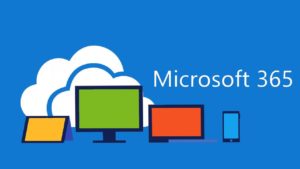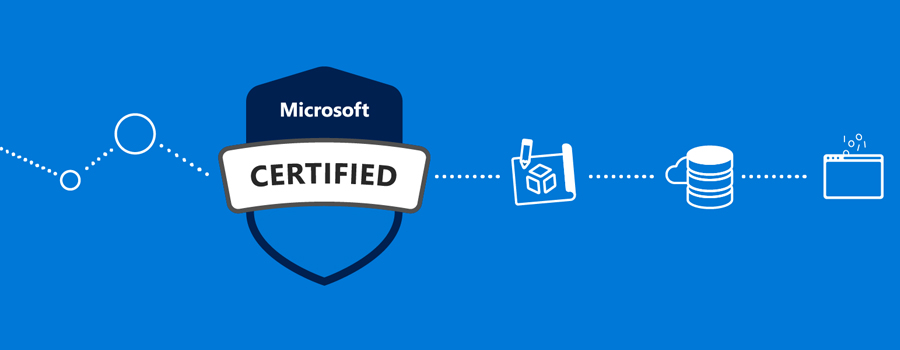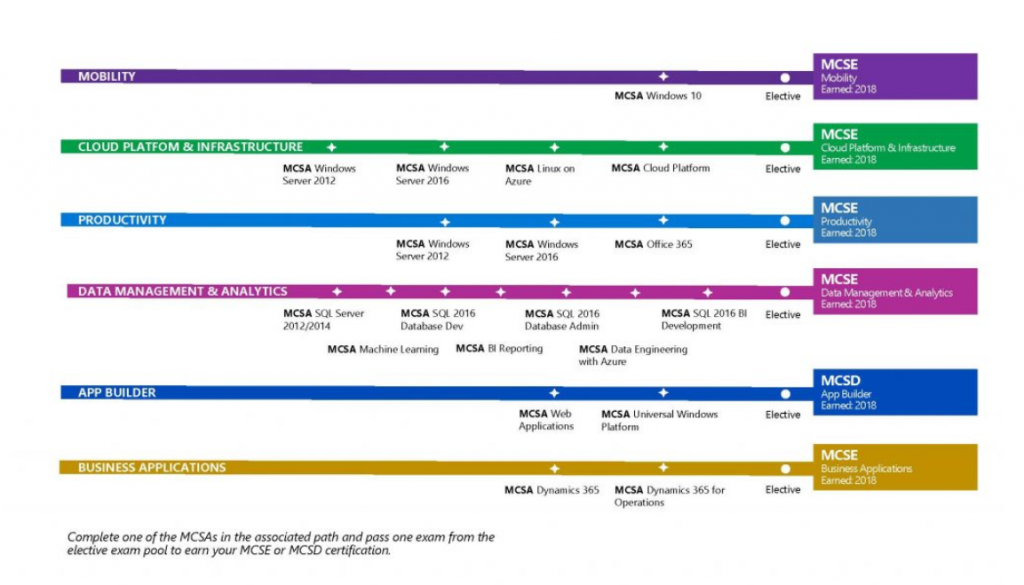What is MCSA: Windows Server 2016?
The MCSA: Windows Server 2016 Certification allows students to learn about the administering, installation, implementation of storage solutions, and computer features on the 2016 Windows operating system. Students will also learn to comprehend key networking concepts, identifying features and techniques. This certification qualifies candidates as; Network Systems Administrator, Computer Systems Administrator or Computer Network Specialist. According to the U.S. Bureau of Labor Statistics the typical median salary for IT professionals with the MCSA: Windows Server 2016 Certification in 2019 was $83,510/year with a steady growth rate of 4% (higher than average) per year. The needs for qualified candidates within this field is only growing as businesses adapt to the new “norm” for 2020.
What about Windows Server 2019?
Microsoft remains an industry powerhouse, dominating both OS (operating systems) and business server solution options worldwide. With the roll-out of Windows Server 2019 a lot of IT professionals wonder if their time is better spent foregoing the 2016 solution and focus their attention on the newer 2019 solution. As  mentioned in our previous blog, MCSA: SQL Server 2016 Database Development, even with the introduction of Windows Server 2019, there has been a 28% increase in businesses utilizing the 2016 version. According to reports, the 2016 version offers users greater performance for advanced security measures with early detection and management of security threats. The 2016 version also offers more support for encryption of networks. Businesses are opting to continue to use or begin using the 2016 version over the 2019 solution as it allows for a greater degree of manageability over various computing environments, while streamlining the processes and making them more user friendly for productivity and cost savings. Needless to say, the continued loyalty and usage of the 2016 solution is not lost on IT professionals who still want to place that certification within their transcripts.
mentioned in our previous blog, MCSA: SQL Server 2016 Database Development, even with the introduction of Windows Server 2019, there has been a 28% increase in businesses utilizing the 2016 version. According to reports, the 2016 version offers users greater performance for advanced security measures with early detection and management of security threats. The 2016 version also offers more support for encryption of networks. Businesses are opting to continue to use or begin using the 2016 version over the 2019 solution as it allows for a greater degree of manageability over various computing environments, while streamlining the processes and making them more user friendly for productivity and cost savings. Needless to say, the continued loyalty and usage of the 2016 solution is not lost on IT professionals who still want to place that certification within their transcripts.
Why is the boot camp a better training option for me?
If you are in need of fast-paced, industry leading, custom built teaching then boot camps are for you. TechSherpas365 offers multiple learning methods for this certification with the most effectual method being the boot camp. By offering technology-focused, short termed accelerated learning programs this method has proven its efficiency in providing the necessary skills and requirements to obtaining certification. If you have any questions or need more information, please reach out here.








